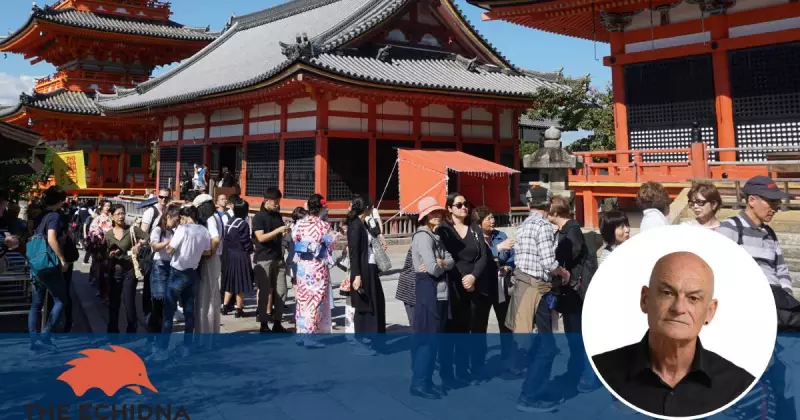
Returning from several weeks in Japan, veteran Australian journalist Garry Linnell has come home transformed, carrying with him a profound lesson about the beauty found in imperfection and the quiet wisdom of patience.
The Contrast Between Precision and Acceptance
At first glance, Japan presents as a nation obsessed with precision and order. Trains arrive exactly on the second, immaculate queues form without complaint, and despite the noticeable absence of public bins, streets remain remarkably clean and free of graffiti. This surface-level efficiency initially suggests a society chasing perfection.
Yet beneath this polished exterior lies a deeper truth. The Japanese don't actually seek perfection because they understand it's unattainable. Instead, they pursue harmony, embracing the ancient philosophy of wabi-sabi – the art of finding beauty in imperfection, ageing, and the natural cycle of growth and decay.
This stands in stark contrast to Western values that prioritise flawlessness and instant gratification. We pursue wrinkle-free skin, flawless service, and uninterrupted technology, constantly editing and filtering our lives to eliminate rough edges. Wabi-sabi, however, teaches reverence for the chipped bowl, not despite its crack but because of it, and admiration for weathered temple timber that has endured centuries without being concealed.
A Society of Collective Patience and Civility
While Japan isn't without its significant challenges – including a record low fertility rate, an ageing population where one in three people are over 65, productivity issues due to hierarchical workplaces and continued use of fax machines, and growing opposition to immigration and tourism – it possesses a collective patience that Linnell found transformative.
Queues are ubiquitous throughout Japanese society, from tiny ramen bars seating just ten customers to temples and museums accommodating hundreds of visitors. Remarkably, during his entire visit, Linnell never witnessed the exasperated sighs, muttered complaints, or passive-aggressive foot shuffling common in Western cultures when forced to wait.
This patience is intertwined with an overwhelming sense of civility that extends beyond formal bows and helpful directions for lost tourists. Tokyo, with over 37 million residents in its greater metropolitan area, remains remarkably safe, boasting a low crime rate attributed to a culture that values self-restraint above all else.
The Lasting Lessons for Australian Travellers
Another cherished Japanese concept, 'Mono no aware', closely related to wabi-sabi, acknowledges the bittersweet truth that nothing lasts forever. This awareness that everything eventually passes makes the pursuit of perfection ultimately meaningless.
While many travellers expect to be changed by what they see, Linnell discovered the most profound transformations come from what you feel. Japan taught him that patience isn't weakness but rather 'grace under the pressure of time'. The true gift of travel might not be the souvenirs and photographs but the opportunity to quietly reprogram our habits and perspectives.
Despite Japan's complex social and economic problems, experiencing a society that values harmony over haste and manners over muttering provided a valuable revelation: Perfection is brittle and overrated, but patience is genuinely beautiful.





